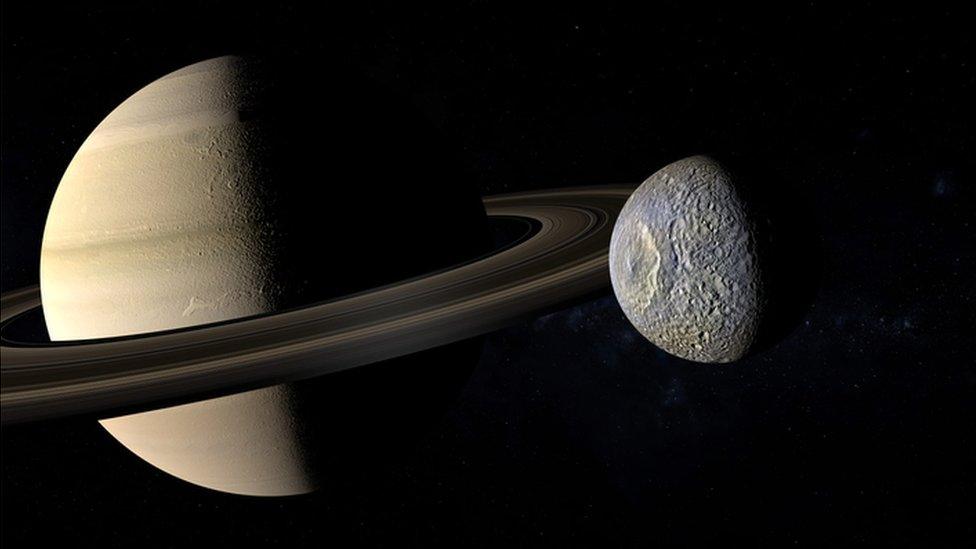Mimas: Saturn's moon may have ocean beneath icy surface
- Published
- comments

Scientists think that one of Saturn's moons may be hiding an ocean under its icy surface.
They believe liquid water formed on Mimas - the planet's smallest and innermost moon - somewhere between five to 15 million years ago.
This would make it much younger than Earth's oceans which are thought to be more than four billion years old.
Mimas joins a list of other satellites in the Milky Way believed to have oceans beneath their surfaces - including two of Saturn's other moons.
What did scientists discover?
The big question: Do aliens exist?
Scientists have long been on a mission to find life on other planets, but with no signs of any activity on Mimas - the unexpected discovery of water has surprised experts!
Researchers said that against all odds, it appears to have an ocean just 20 to 30km below its icy outer shell.
Dr Nick Cooper, from Queen Mary University of London, said: "Mimas is a small moon, only about 400 kilometres in diameter, and its heavily cratered surface gave no hint of the hidden ocean beneath.
But the new find could make it a potential spot for finding life in our galaxy.
He added: "The existence of a recently formed liquid water ocean makes Mimas a prime candidate for study, for researchers investigating the origin of life."
A year on Saturn is equivalent to around 29 Earth years!
For the study, a team led by the Paris Observatory in France, looked at data from Nasa's Cassini spacecraft.
Cassini studied Saturn and its moons for more than a decade before crashing into the planet in 2017.
By taking a closer look at Mimas' orbit, they were able to find evidence pointing to a hidden ocean and estimate its size and depth.
WATCH: Ayshah looks back at Cassini's 20 years in space
The team said their discovery suggests that even small and seemingly inactive moons can contain hidden oceans capable of supporting conditions needed for the formation of life.
Other moons in our solar system believed to have oceans beneath their surfaces include Jupiter's Europa and Ganymede as well as Saturn's Titan and Enceladus.
